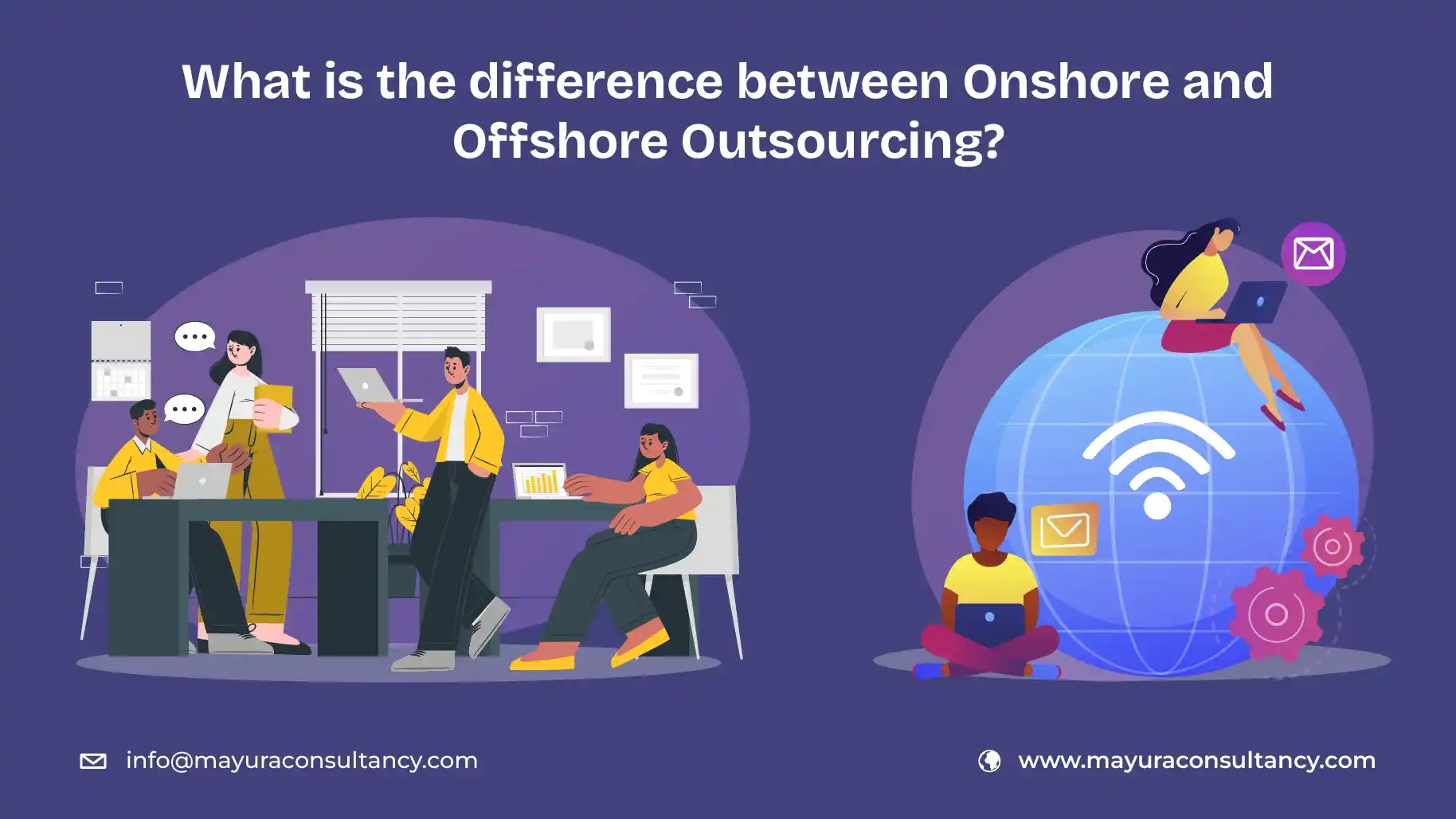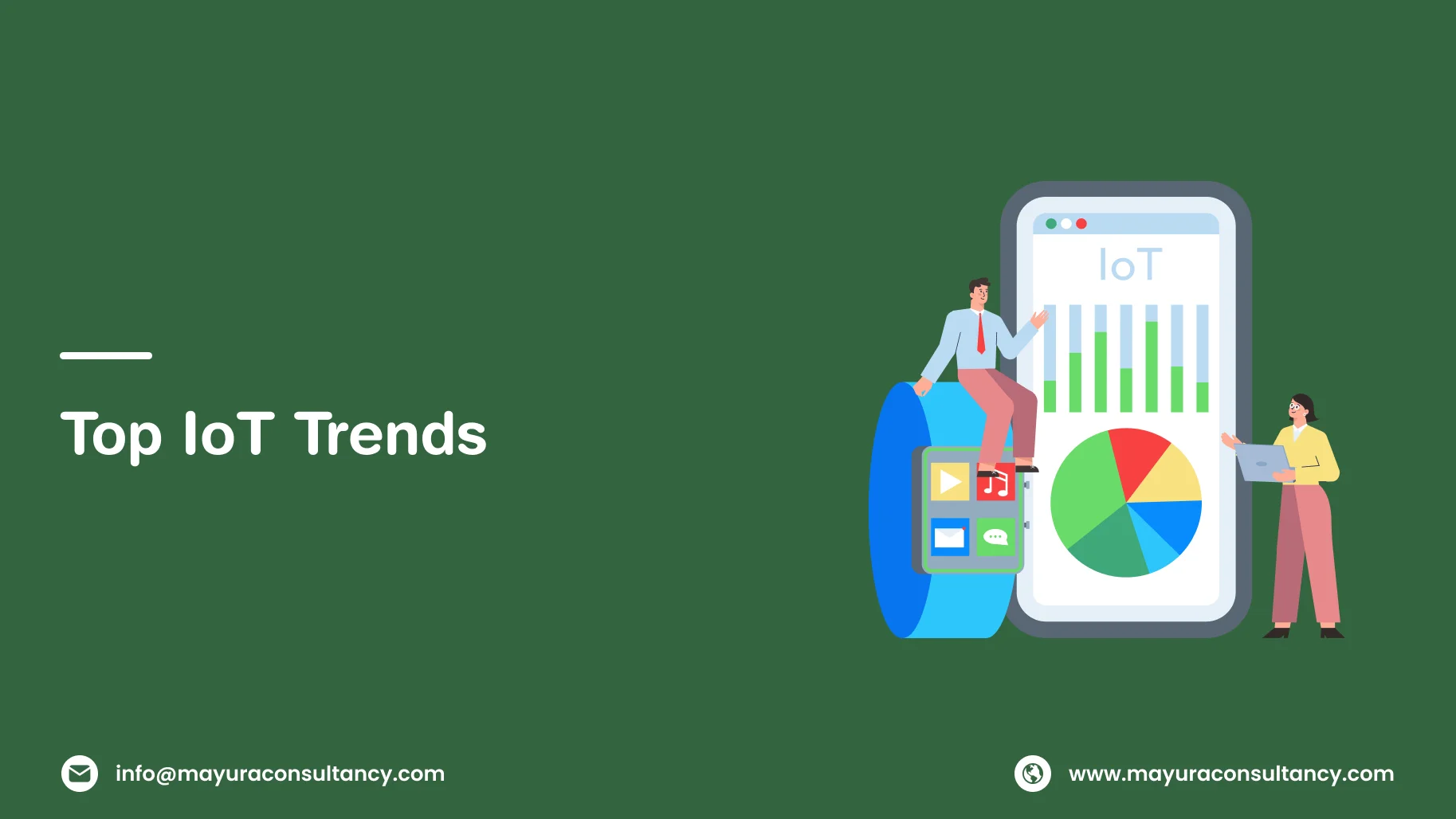Effortless customer engagement, seamless navigation, and real-time personalization—these are just a few ways beacon technology is transforming businesses. From retail to healthcare, this powerful technology enables companies to interact with their customers like never before.
Due to this, a growing number of enterprises are adopting this technology. A Business Research Insights report projected the global beacon technology market was around USD 1211.5 million in 2021 and is expected to grow at a CAGR of 25.8% between 2021 and 2031 to reach USD 12397.92 million by 2031. But what is beacon technology, and how does it benefit businesses? Let's break it down.
This Article Contains:
What is Beacon Technology?
Beacon technology is a wireless communication system that uses Bluetooth Low Energy (BLE) to send signals to nearby devices. Smartphones and tablets can detect the signals, enabling businesses to provide personalized, location-based services and experiences.
For example, Apple uses Beacon technology in their retail stores to send personalized offers and product information to customers' iPhones as they browse the store.
Now that you have a clear understanding of what is beacon technology, let’s learn how it works, its application areas, and how it can benefit businesses.
How Does Beacon Technology Work?
Beacon technology uses small, low-power devices called beacons that transmit Bluetooth Low Energy (BLE) signals. Using radio waves, beacons transmit data packets that are detected by compatible devices. The packets can either be standalone data or act as triggers for events on the receiving device, such as push notifications, app actions, or prompts.
Bluetooth beacons have a range of less than 100 meters and can experience up to 6 milliseconds of latency in a non-connected state. The actual range and response time can vary depending on the beacon's specifications. It allows businesses to deliver personalized messages to customers when they enter the range, driving engagement and loyalty.
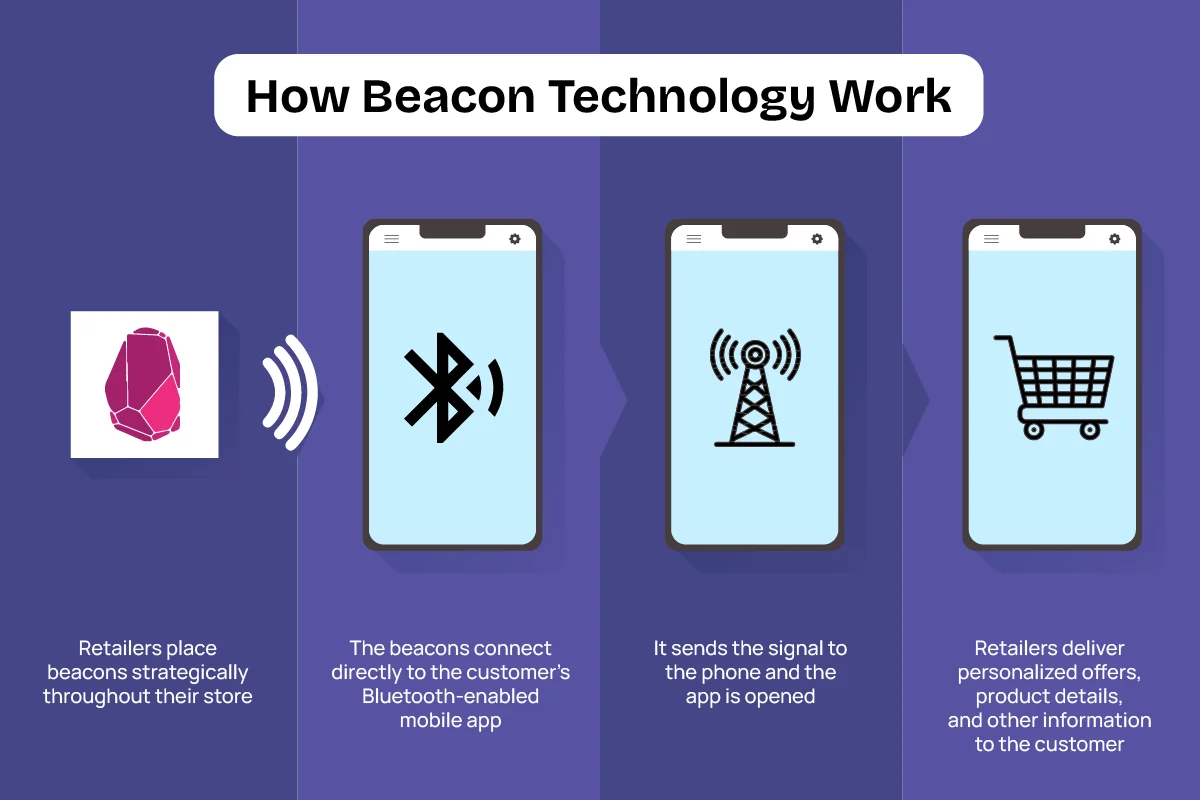
Applications of Beacon Technology
Beacon technology has a wide range of applications from retail to healthcare and other industries. According to Fortune Business Insights, tech giants like Apple and Google have already developed advanced Beacon protocols like iBeacon and Eddystone for their business. But what are the applications of this technology? Let’s find out.
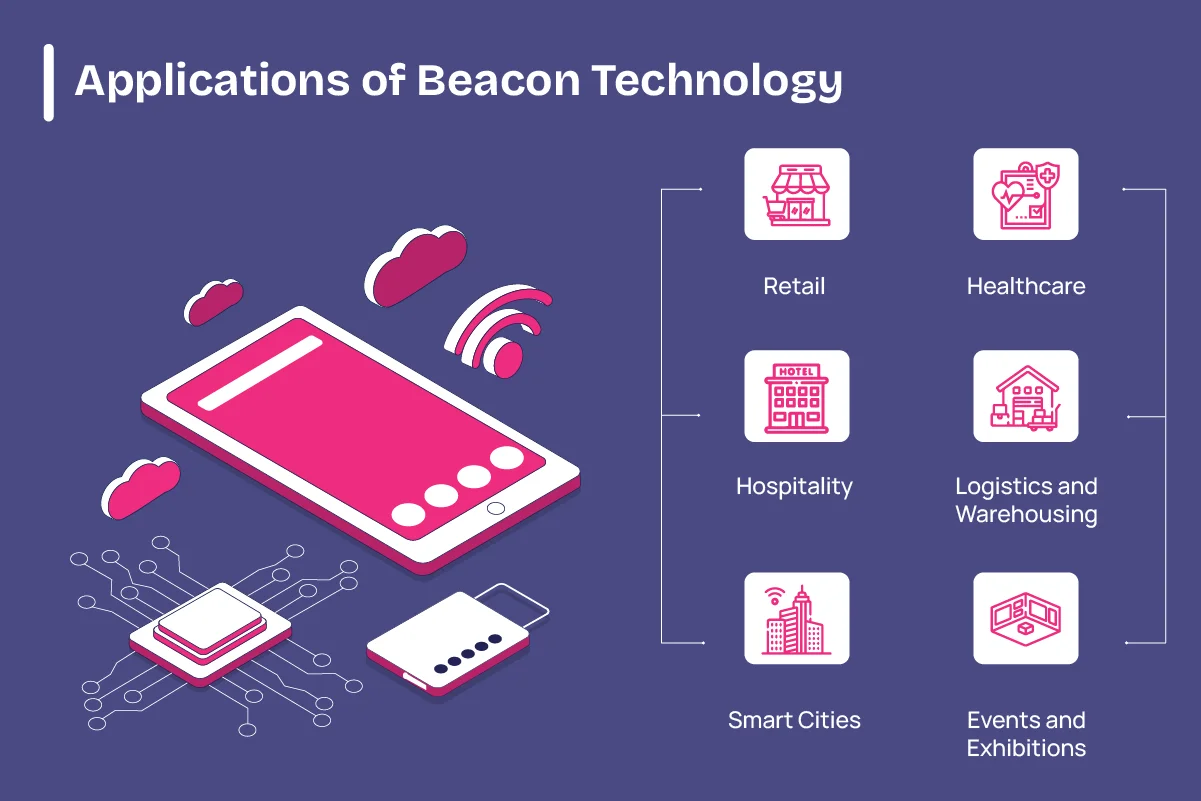
 Retail
Retail
Are you tired of watching customers walk out of your store without making a purchase, or is your store unable to attract customers? If you are facing such situations, Beacon technology can help! By sending personalized offers and promotions to customers' mobile devices, you can attract customers to your store, enhance the shopping experience, and boost sales.
 Healthcare
Healthcare
In healthcare, every second counts! Beacon technology enables healthcare professionals to track patients' movements and vital signs in real-time. From guiding patients to their appointments to tracking life-saving equipment, beacons are revolutionizing healthcare operations, helping healthcare professionals provide efficient services.
 Hospitality
Hospitality
Do you want to leave a memorable impression on your guests? By providing personalized recommendations and services, you can make your guests feel cared for and valued. Beacon-powered mobile application development allows hotels to deliver personalized welcome messages, contactless check-ins, room key automation, provide concierge services, and more, improving guests' experiences.
 Logistics and Warehousing
Logistics and Warehousing
With beacon technology, tracking inventory and optimizing workflows has never been easier. Beacons offer real-time location tracking for goods and equipment, minimizing errors, improving operational efficiency, and reducing costs. For instance, a warehouse using beacon technology can automatically update stock levels as products move in and out, ensuring smooth operations.
 Smart Cities
Smart Cities
Imagine living in a city where traffic flows smoothly, public transportation is efficient, and citizens are connected. Beacon technology can turn this vision into a reality, enabling cities to become smarter and more sustainable. Here is how beacon technology is transforming smart cities.
Efficient traffic management: Beacons provide real-time traffic updates, reducing congestion and ensuring smooth traffic movement.
Smart parking solutions: Leveraging beacons allows drivers to receive instant alerts about available parking spaces nearby.
Public safety enhancements: Beacons enable emergency alerts and faster response times in critical situations.
Enhanced public transportation: With beacons, commuters can get real-time updates on bus and train schedules for smoother journeys.
 Events and Exhibitions
Events and Exhibitions
Are you aware that you can leverage beacon technology to create a captivating and engaging experience for your attendees? Beacons can automate check-ins or registration processes, reducing wait times and improving the attendee experience. They also provide real-time indoor navigation, helping attendees locate booths, sessions, or key areas with ease.
What’s more, you can use beacons to provide attendees with interactive maps, live schedules, booth locations, and personalized updates.
Top 5 Benefits of Using Beacon Technology
Beacon technology offers a wide range of benefits. Here are the top six benefits of beacon technology for businesses.
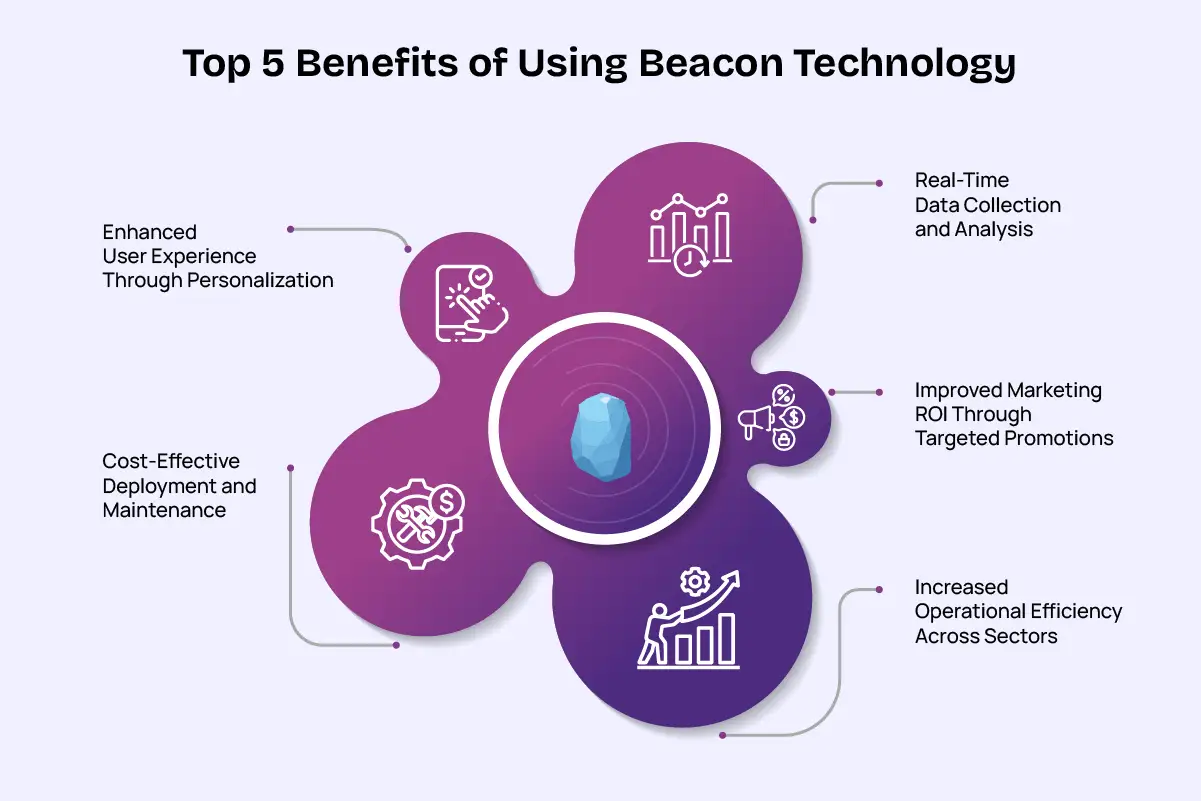
1. Enhanced User Experience Through Personalization
Do you know beacon technology helps you send relevant and location-based updates? Imagine walking into a store and receiving tailored offers and recommendations directly on your phone. Isn't this the kind of convenience customers expect in today's digital-first world? Such customization engages customers and makes them feel valued, enhancing customer satisfaction.
2. Cost-Effective Deployment and Maintenance
Beacons are a cost-effective solution for companies of all sizes. You can set up them quickly without the need for expensive infrastructure. Their long battery life and wireless connectivity ensure smooth operations without frequent intervention. Moreover, beacons require low maintenance, ensuring long-term cost savings.
3. Real-Time Data Collection and Analysis
Beacons allow businesses to collect real-time data. This helps you gain critical insights into customer behavior, such as foot traffic patterns and product preferences, to refine business strategies and make quick, informed decisions. With real-time analytics, businesses can stay agile and competitive in today's dynamic business environment.
4. Improved Marketing ROI Through Targeted Promotions
Why do retail businesses prefer beacon technology to traditional offline marketing?
The conventional marketing methods are generic and not suitable for every customer, resulting in a waste of resources and poor ROI. On the other hand, Beacon technology allows businesses to send location-specific and personalized offers, maximizing the impact of their campaigns.
This targeted approach leads to higher engagement and conversion rates, ensuring that marketing budgets deliver better returns on investments.
5. Increased Operational Efficiency Across Sectors
Beacon technology offers a more impactful marketing solution for retailers, restaurants, hotels, healthcare providers, and transportation services. But, can other businesses also benefit from this technology? The answer is "Yes".
Beacons can streamline operations by automating processes, such as check-ins, navigation, inventory tracking, and real-time data collection for decision-making. This helps businesses in healthcare, logistics, hospitality, and other industries to improve overall efficiency and productivity.
Future Trends in Beacon Technology
Beacon technology has emerged as one of the top mobile app development trends. But what are the future developments in beacon technology? Let's explore.
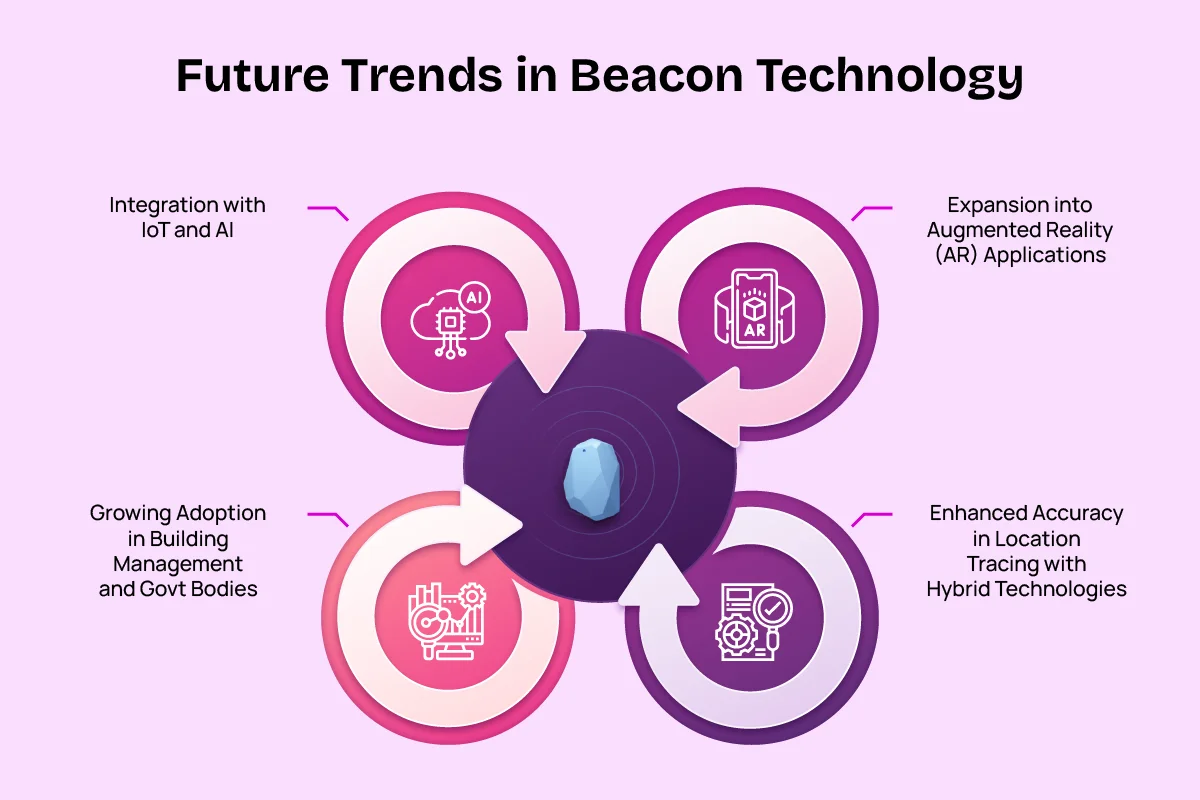
1. Integration with IoT and AI
As businesses rely on data to make key strategies and marketing campaigns, beacon technology has emerged as a useful tool for gathering real-time data. The combination of beacon technology with IoT and AI development is transforming how businesses operate.
While AI algorithms can analyze real-time data from beacons to deliver hyper-personalized offers and experiences, the Internet of Things (IoT) ensures seamless communication of devices.
2. Expansion into Augmented Reality (AR) Applications
Beacons are unlocking the true potential of AR applications by delivering interactive environments and immersive AR experiences that captivate customers. Shopping malls are using AR overlays to display product information or virtual try-ons as shoppers browse the products. We may see more malls adopt this technology in the coming years.
3. Growing Adoption in Building Management and Govt Bodies
Beacon technology is set to transform buildings and environments. Beacons can guide visitors through large complexes, facilitate contactless access control, adjust lighting and temperature automatically based on occupancy, and provide real-time analytics for building usage.
Besides that, beacons can also collect proximity data, which helps governments and local authorities improve public services and quality of life.
4. Enhanced Accuracy in Location Tracing with Hybrid Technologies
By integrating Bluetooth with advanced communication systems like Wi-Fi, GPS, and UWB, beacons can offer unparalleled accuracy in location tracking. Businesses in the logistics, retail, and hospitality industries can streamline workflows, enhance customer experiences, and improve operational efficiency, which will grow the adoption of this technology in the future.
Conclusion
Beacon technology has far-reaching implications that extend beyond retail and marketing. It has diverse applications ranging from indoor navigation and asset tracking to smart home automation and streamlining accessibility. As the technology continues to evolve, we can expect to see new applications across industries, and adopting this technology early can help you unlock new opportunities and give your business a competitive advantage.
Frequently Asked Questions
1. What is the purpose of a beacon?
The primary purpose of a beacon is to send signals to nearby devices, like smartphones or tablets using Bluetooth Low Energy (BLE) technology. This signal can trigger various actions, such as location-based notifications, targeted promotional messages, tracking assets, unlocking doors, and turning on lights.
2. Can beacons be used indoors and outdoors?
Yes, beacons can work both indoors and outdoors. However, their range and accuracy may vary depending on the environment and surrounding obstacles
3. Are there any privacy concerns with beacon technology?
Privacy concerns arise when businesses collect user data without their consent. Companies must ensure transparency, obtain permissions, and comply with data protection regulations such as GDPR or CCPA.
4. What is the cost of implementing beacon technology?
The costs of integrating beacon technology can vary depending on the business requirements, the type and number of beacons, the complexity of the implementation, and infrastructure and maintenance requirements.



